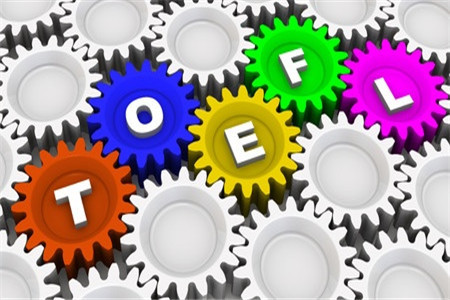【小站原创】官方真题Official6托福阅读Passage3原文文本+真题+答案解析
- 2018年01月19日17:00 来源:小站整理
- 参与(0) 阅读(31902)
现在大家在进行托福备考时官方真题Official托福模考软件相信是大家用的最多的工具了,对于托福成绩的提升是非常有帮助的。托福听力可以说是整个托福考试当中比较重要的一个部分,如何利用现有资料官方真题Official模考软件来提升大家的托福成绩呢?今天小编在这里整理了官方真题Official6托福阅读Passage3原文文本+题目+答案解析来分享给大家,希望对大家托福听力备考有帮助。
官方真题Official6托福阅读Passage3原文文本
Infantile Amnesia
What do you remember about your life before you were three? Few people can remember anything that happened to them in their early years. Adults' memories of the next few years also tend to be scanty. Most people remember only a few events—usually ones that were meaningful and distinctive, such as being hospitalized or a sibling’s birth.
How might this inability to recall early experiences be explained? The sheer passage of time does not account for it; adults have excellent recognition of pictures of people who attended high school with them 35 years earlier. Another seemingly plausible explanation—that infants do not form enduring memories at this point in development—also is incorrect. Children two and a half to three years old remember experiences that occurred in their first year, and eleven month olds remember some events a year later. Nor does the hypothesis that infantile amnesia reflects repression—or holding back—of sexually charged episodes explain the phenomenon. While such repression may occur, people cannot remember ordinary events from the infant and toddler periods either.
Three other explanations seem more promising. One involves physiological changes relevant to memory. Maturation of the frontal lobes of the brain continues throughout early childhood, and this part of the brain may be critical for remembering particular episodes in ways that can be retrieved later. Demonstrations of infants’ and toddlers' long-term memory have involved their repeating motor activities that they had seen or done earlier, such as reaching in the dark for objects, putting a bottle in a doll’s mouth, or pulling apart two pieces of a toy. The brain’s level of physiological maturation may support these types of memories, but not ones requiring explicit verbal descriptions.
A second explanation involves the influence of the social world on children’s language use. Hearing and telling stories about events may help children store information in ways that will endure into later childhood and adulthood. Through hearing stories with a clear beginning, middle, and ending children may learn to extract the gist of events in ways that they will be able to describe many years later. Consistent with this view, parents and children increasingly engage in discussions of past events when children are about three years old. However, hearing such stories is not sufficient for younger children to form enduring memories. Telling such stories to two year olds does not seem to produce long-lasting verbalizable memories.
A third likely explanation for infantile amnesia involves incompatibilities between the ways in which infants encode information and the ways in which older children and adults retrieve it. Whether people can remember an event depends critically on the fit between the way in which they earlier encoded the information and the way in which they later attempt to retrieve it. The better able the person is to reconstruct the perspective from which the material was encoded, the more likely that recall will be successful.
This view is supported by a variety of factors that can create mismatches between very young children's encoding and older children's and adults' retrieval efforts. The world looks very different to a person whose head is only two or three feet above the ground than to one whose head is five or six feet above it. Older children and adults often try to retrieve the names of things they saw, but infants would not have encoded the information verbally. General knowledge of categories of events such as a birthday party or a visit to the doctor's office helps older individuals encode their experiences, but again, infants and toddlers are unlikely to encode many experiences within such knowledge structures.
These three explanations of infantile amnesia are not mutually exclusive; indeed, they support each other. Physiological immaturity may be part of why infants and toddlers do not form extremely enduring memories, even when they hear stories that promote such remembering in preschoolers. Hearing the stories may lead preschoolers to encode aspects of events that allow them to form memories they can access as adults. Conversely, improved encoding of what they hear may help them better understand and remember stories and thus make the stories more useful for remembering future events. Thus, all three explanations—physiological maturation, hearing and producing stories about past events, and improved encoding of key aspects of events—seem likely to be involved in overcoming infantile amnesia.
查看官方真题Official6托福阅读Passage3的题目请进入下一页→→→



























